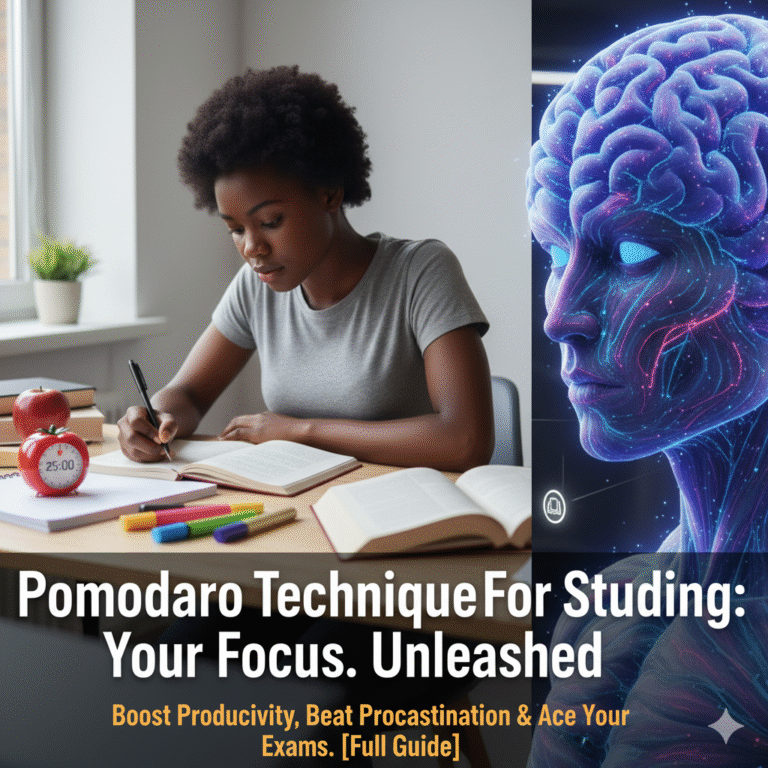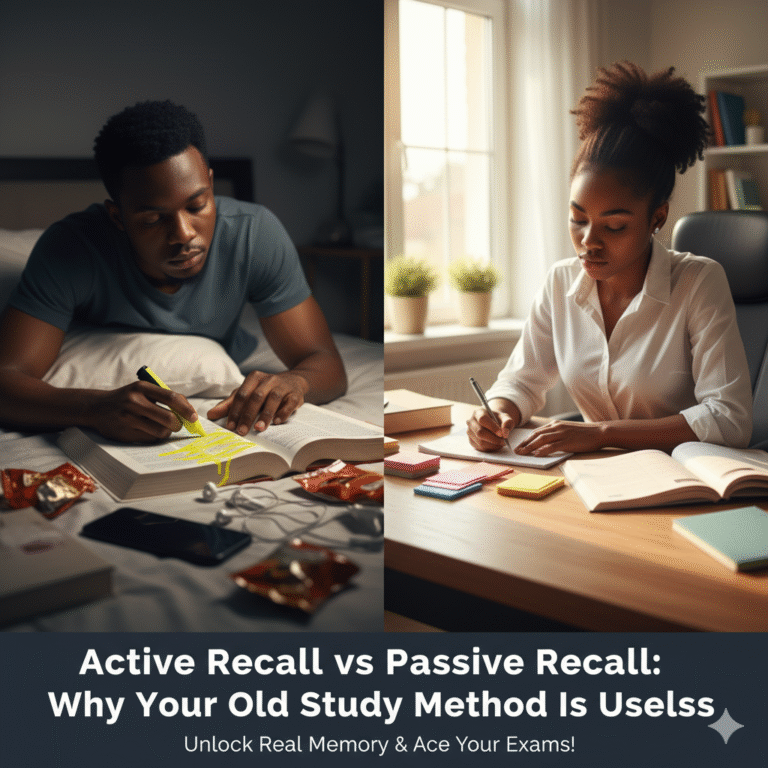Last Minute Study Tips for Exams That Actually Works
Last Minute Study Tips for Exams That Actually Works
Okay, let’s be real. The exam is tomorrow.
You’re staring at that fat textbook or your WAEC Physics notes, and the panic is starting to set in. You told yourself you’d start reading last week, but life happened. Now you’re desperately searching for some magic last minute study tips for exams.
I won’t lie to you: this isn’t the best way to prepare for an exam. But since we are here, we can’t cry. We have to do damage control.
This guide isn’t about learning everything. That’s impossible now. This is about being strategic, managing your panic, and grabbing every possible mark to get a pass.

Let’s Call Cramming What It Is: A Risky Gamble
A lot of students just try to “cram and pour.” They plan to read “TDB” (Till Day Break), forcing definitions and formulas into their heads.
Here’s the problem: your brain is not a computer.
When you cram like that, the information is shaky. It’s stuck in your short-term memory. The slightest stress in the exam hall—like the invigilator shouting, “Submit in 5 minutes!”—can make your mind go completely blank. You’ll look at a question you know you read, and nothing will come out.
We need a smarter, more focused “damage control” plan.
A Realistic Plan: Strategic Last Minute Study Tips for Exams
Forget trying to read everything. You can’t. You’ll just get overwhelmed and remember zero. Instead, do this:
1. Be a Smart Soldier: Target High-Yield Topics Grab the course outline or syllabus. Look at past questions (if you have any). What topics always come out? What definitions, laws, or formulas did your lecturer or teacher keep repeating in class?
That is your target. Focus all your limited energy on those 3-4 “expo” topics. It’s better to know 3 topics 80% well than to know 10 topics 10% well.
2. Stop Reading, Start Writing This is the most important tip. Do not just read your notes over and over. That’s passive and useless for memory.
Be active. Get a plain sheet of paper (or a jotter). For each key topic you targeted, write down the main points.
- Write the main formula.
- Write the key definition in your own words.
- Write the 3 most important steps in that process.
This act of writing forces your brain to process the information, making it stick better than just scanning with your eyes.
3. Use the 20-5-20 Method Your concentration is probably low because you’re stressed. Don’t try to study for 3 hours straight. You’ll just end up staring at the same page.
Try this:
- Focus (20 mins): Study with intense focus for 20-25 minutes. No phone, no social media, no gist.
- Rest (5 mins): Stand up. Walk around your room. Drink water. Stretch.
- Repeat: Go back for another 20-25 minutes of focus.
This is a simple way to keep your brain fresh and manage that rising panic.
4. You MUST Sleep. Seriously. I know you want to pull an all-nighter. It sounds dedicated, but it’s one of the biggest mistakes you can make.
Your brain needs sleep to move information from your shaky short-term memory to a more stable place.
It is 100% better to study strategically for 4 hours and get 3-4 hours of solid sleep, than to “read” for 8 hours while dozing off and drinking energy drinks. You’ll enter the exam hall with a foggy, useless brain. Don’t do it.
What to Avoid the Night Before the Exam
Your “don’t do” list is just as important as your “to-do” list.
- DON’T try to learn a complex new topic. It’s too late. It will just confuse you and make you panic that you know nothing. Stick to what you kinda know and make it stronger.
- DON’T eat heavy food. If you eat a big bowl of eba or pounded yam at 11 PM, you’re finished. You’ll just sleep off. Eat something light. Drink water, not sugary energy drinks that will make you crash.
- DON’T join a panic-filled group discussion. Be careful with those last-minute hostel study groups. Often, they just turn into everyone shouting about what they haven’t read. This can shatter your confidence. It’s usually better to focus on your own plan.
In the Exam Hall: The Final Lap
Okay, it’s morning.
- Stop cramming. Don’t try to learn anything new. Just quickly (for 10 minutes) review that summary sheet you wrote.
- Eat light. A slice of bread, some tea, or a banana. Don’t go in on an empty stomach, but don’t go in stuffed either.
- Breathe. When you get that question paper, just breathe. Spend the first 2-3 minutes reading all the instructions.
- Attack your strengths. Answer the questions you know first. This builds your confidence, secures marks, and warms up your brain. Then, go back for the ones you’re not sure about.
Look, this last-minute rush is stressful. The real goal is to start earlier next time (we both know this). But for now, you have a plan.
Be calm, be strategic, and go in there and do your best. You might just surprise yourself.
What’s your own craziest last-minute study story? Or what’s the one tip that always works for you? Drop it in the comments. Good luck!







